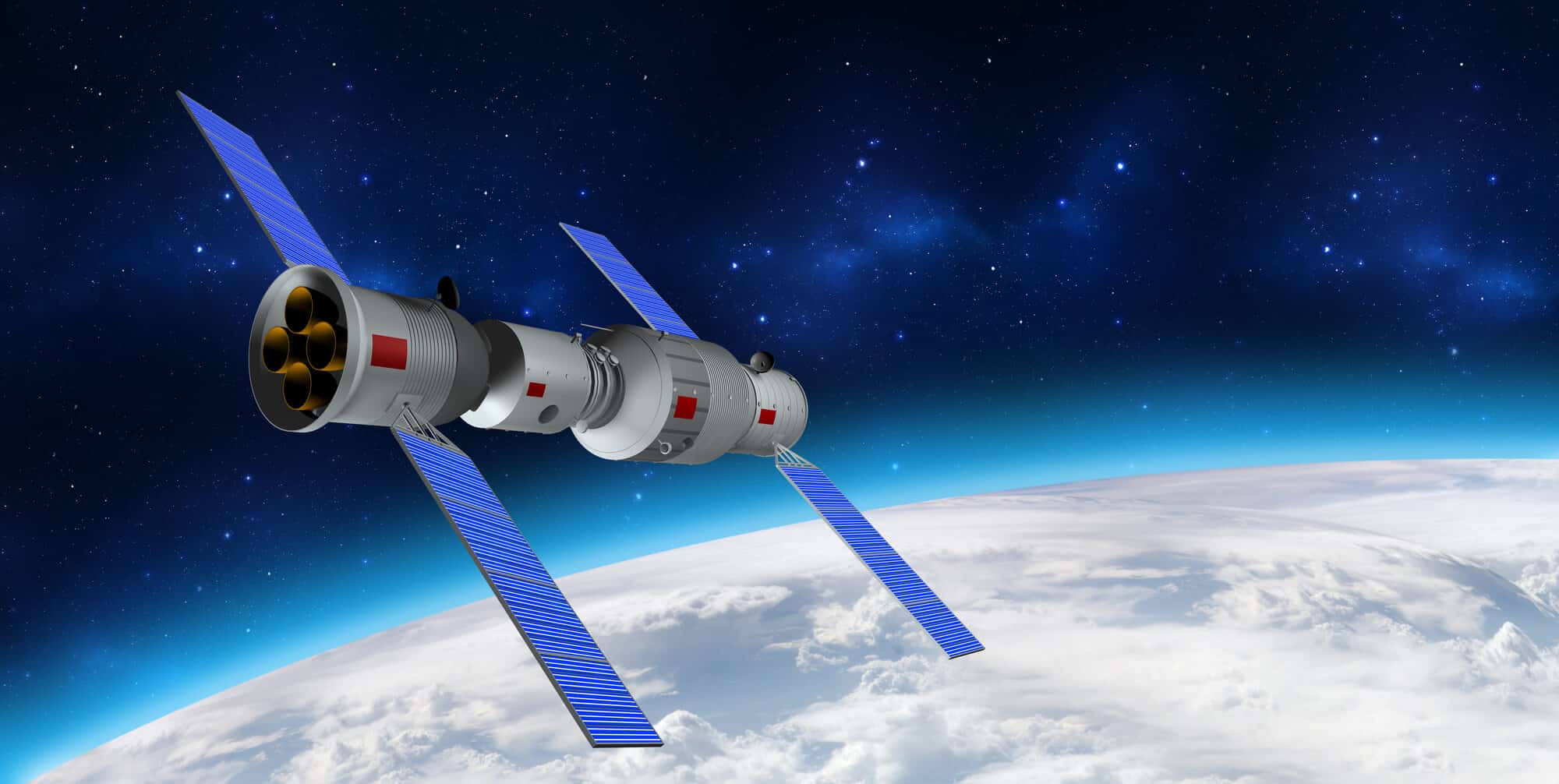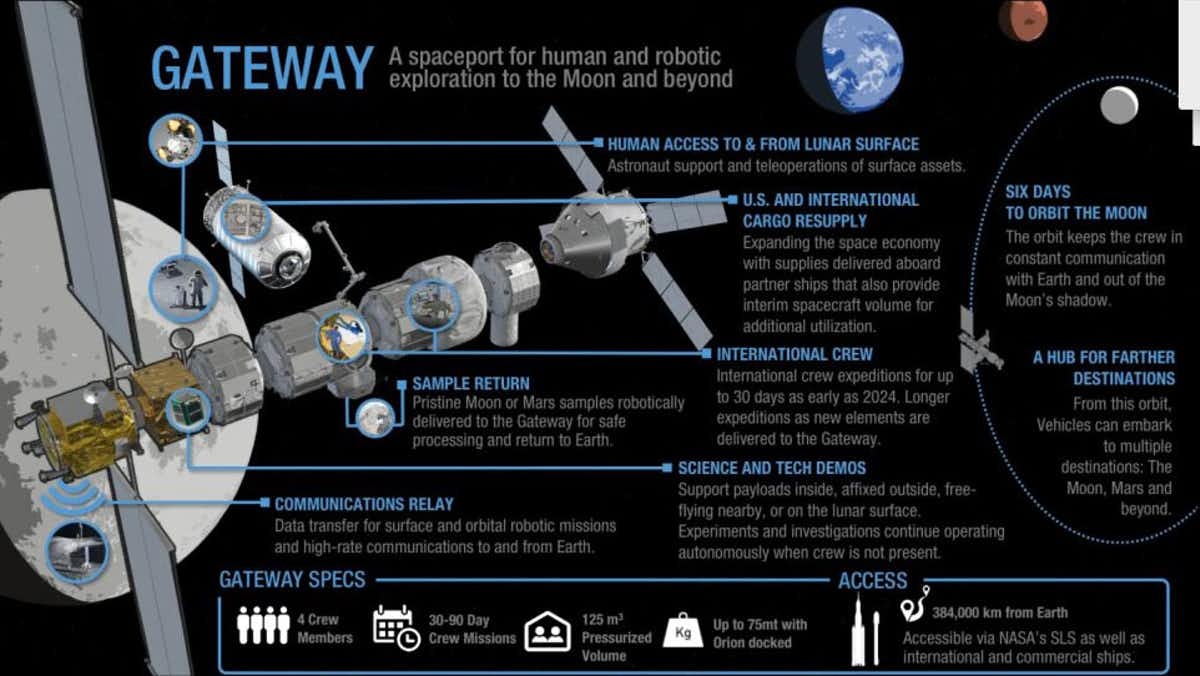This is if it is decided not to extend the life of the international station in favor of diverting the budget to the moon gate

On April 29, China launched Tianhe-1, the first and main module of a permanent space station called Tiangong (Heavenly Palace 天宫). Two more science modules (Wentian and Mengtian) will arrive in 2022 in a series of missions that will complete the station and allow it to start operating.
Although this is not the first space station in China - the country has already launched two - but the new modular design allows it to replicate the International Space Station (ISS), from which China was excluded.
There are many reasons for China to invest in this expensive and technologically challenging project. One is to conduct scientific research and discover medical, environmental and technological discoveries. But there are also other possible motives, such as commercial profits and prestige.
However, Tiangong does not aim to compete with the International Space Station. The Chinese station will be smaller and similar in design and size to the former Soviet space station 'Mir', which means that fewer astronauts will be able to stay there at the same time (three compared to six on the International Space Station.
After all, the Chinese space station does not have such a large budget as the ISS and there are not as many countries involved in its construction. If something can be called the United Nations in space, it is the International Space Station that allows former Cold War enemies - the USA and Russia - to cooperate, as well as old friends (Japan, Canada and Europe). During the two decades of service of the International Space Station, the only permanent human outpost in space hosted approximately 250 astronauts from 19 different countries, and performed hundreds of spacewalks and thousands of scientific experiments.
But the International Space Station is reaching the end of its life and is supposed to be decommissioned after 2024 to make way for the 'Moon Gate', a small space station that will orbit the moon. This is an international initiative that is part of the US-led 'Artemis' program, from which China is also excluded.
Towards a Chinese monopoly?
However, until the 'Moon Gate' is launched, Tiangong - which will be placed in low Earth orbit and will have a lifespan of 15 years - will likely remain the only functioning space station. Some worry that this makes it a security threat, and claim that its science modules can easily be converted for military purposes, such as spying on countries. But it doesn't have to be like that and if things happen as planned.
China may use this opportunity to win back trust and attract international cooperation. This may be especially important given the criticism of NASA following the recent Chinese rocket that fell out of control in the Indian Ocean. There are signs that China is trying to be more open, having already stated that Tiangong would be open to hosting non-Chinese teams and scientific projects. Astronauts from the European Space Agency, NASA, actually began training with Chinese "taikonauts", and international projects were included in the first selected set of experiments approved on the station.
Tiangong may not be alone for long either. With NASA's support, private corporations have begun designing their own orbital modules, from Bigelow Aerospace's inflatable B330 to the commercial laboratory and residential infrastructure built by Axiom. Even Blue Origin has shown interest in building a space station. It seems that the Russians also like the idea - they already have plans for a luxury space hotel. Moreover, the already extended ISS lifespan may be extended even further, although there is much debate surrounding its end date.
moon gate
Tiangong may not be alone for long, as the 'Moon Gate' will be launched eventually. In its basic concept, the 'Moon Gate' will serve as a scientific laboratory and a short-term residential module. It will then serve as a hub, allowing manned and resupply spacecraft to stop there during their multiple trips to the moon. The first launch is already planned for May 2024 using SpaceX's heavy Falcon rocket, where the essential modules will be lifted and the station orbiting the moon will be operational within a few years.

moon gate NASA
Compared to the International Space Station, the gateway will be smaller and more agile. Of the original partners of the International Space Station, only four (USA, Europe, Japan and Canada) are part of the gateway. For now, Russia is not joining, because of the disputes surrounding the Artemis program, which many countries believe is too American.
This is another opportunity for China. It has already begun to cooperate with other countries in additional space projects. In March 2021, it signed an agreement with the Russian space agency Roscosmos to establish a joint Russian-Chinese research facility on the moon. After Russia lost its monopoly on manned flights to the space station due to the successful launches of SpaceX's manned spacecraft beginning in 2020, Russia seems keen to keep its options open regarding lunar projects.
Ultimately, space is both challenging and expensive. Although this is a way for many countries to demonstrate control, cooperation has already proven to be more effective than individual efforts: if anything, the International Space Station is the best proof of this. We know that space exploration can also neutralize tensions in the field, as was the case during the Cold War.
Taking a leading role in the new space race could have a similarly positive effect—especially if China shows goodwill in helping to address a growing security problem in low Earth orbit: how to dispose of space debris.
For the article on THE CONVERSATION website
More of the topic in Hayadan:
- Minister of technology predictions for 2021 - the same but more
- Towards a Chinese space station
- Red Space - China's manned space program - second article in the series
- China: Manned space station to be completed in 2020 (The launch was postponed due to the corona virus and as mentioned above only the first module was launched and that too in April 2021)
- China plans to send three astronauts to its space lab this summer

One response
China is gradually becoming the most powerful world power.
Unlike the United States, we do not have strong support from China. This is a worrying thing.
Eli Isaac is an academic private tutor for computer science and mathematics
https://panda2all.com/private_tutor_programming.html